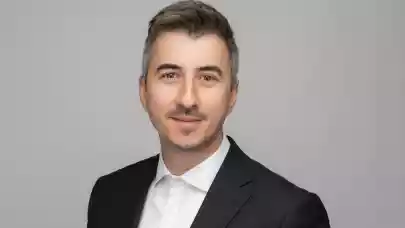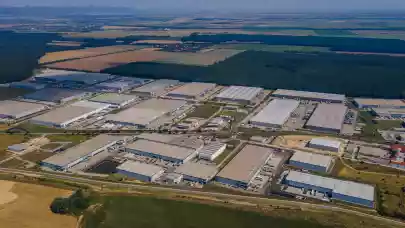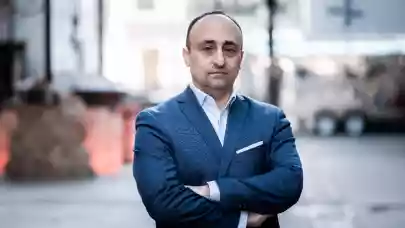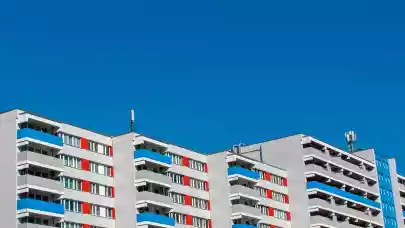
George Gardin, Country Manager for Romania at Yellow Tree Group, spoke with Property Forum about the group's first pilot development in Romania, Aria Shopping Center, and the investment vision for the local market going forward, with a focus on diversification into hospitality and in-city logistics.
This interview was first published in Property Forum’s annual listing of "The 50 most influential people in Romania’s real estate market”.
What has been the performance of your Romanian office portfolio over the past year in terms of new leasing activity or investments?
Over the past year, our Romanian office portfolio recorded strong performance, with 10,000 sqm of new space leased and a stable occupancy rate for offices of 95% throughout the year.
On the investment side, we've continued to enhance our assets through upgrades and improvements that will increase the comfort of our tenants as well as the overall efficiency and sustainability of our buildings.
Are you considering any new office projects or acquisitions in the near future, in Bucharest or regional cities?
We remain open to exploring new investment opportunities in Bucharest. As a strategic decision, we invest exclusively in capital cities or major gateway cities, which is why all our Romanian investments are concentrated in Bucharest. This year, we're excited to launch our first new development project - Aria Shopping Center, a pilot development situated in our logistic park, featuring a showroom with a built area exceeding 8,000 sqm. This project marks an important milestone in our expansion strategy in Romania.
How are you adapting your Romanian office spaces to the evolving needs of tenants, particularly with regards to hybrid work models and the increasing focus on amenities and adaptability?
We're seeing a clear shift in tenant expectations-today's clients are more specific about how their workspaces function. This includes a growing demand for elements that support both productivity and well-being, such as phone booths, focused workstations, and generous relaxation areas. In response, we're designing our office spaces with adaptability and user experience in mind. Within our buildings, we improve thoughtfully designed common areas, featuring terraces or relaxing areas, bike parking facilities and electric car charging stations. We also prioritise integrating commercial amenities like supermarkets, food outlets, and coffee shops to enhance convenience.
Beyond the office sector, what other emerging or underexplored real estate investment opportunities in Romania are currently of interest to Yellow Tree?
We do have diversification in mind, and within the wider Yellow Tree Group we cover quite a lot of sectors, therefore we do have the know-how in our team which enables us to look at a wide range of asset classes. Right now, we are still particularly interested in opportunities within in-city logistics and hospitality. These segments align with evolving market demands and also with our buy-and-hold strategy, especially in dynamic urban environments.
What are the key drivers and challenges shaping the outlook for the Romanian real estate market in the coming years?
Romania's real estate sector continues to stand out within CEE, offering investors attractive yields and benefiting from comparatively lower labour and construction costs. However, it is not without its challenges. Rising operational expenses-driven by increasing property taxes, higher minimum wages, elevated maintenance costs, and some of the highest energy prices in the EU-are placing pressure on both landlords and tenants. Additionally, fiscal unpredictability, with frequent legislative changes, has become an increasingly concerning factor for us. In response, we've prioritised digitalisation and workflow optimisation to enhance efficiency and cost-effectiveness.
How do you perceive the current investment climate in Romania compared to other markets where Yellow Tree Group has a presence?
I'd say it's a bit of an unstable investment climate with not so many transactions on the market as in previous years, a lot of people are on a "wait and watch” approach when it comes to Romania, and we honestly are no different in this regard. In the previous 24 months, 95% of our investments have been in other markets, so by comparison, our board is more confident in signing off on acquisitions in other parts of the world right now, where the overall landscape is more stable and predictable. In Romania, we note significantly less foreign investments, which probably paved the way for some local investors to emerge, since the competition is not what it used to be. This shift is not necessarily a bad thing; it could be quite the opposite, as it could signal a diversification of market players and a gradual reduction in reliance on foreign investments alone. However, we will have to see how sustainable it is. To further enhance Romania's appeal to international capital, particularly in the commercial real estate sector, there is a clear need for regulatory improvements, fiscal predictability and political stability.
What is Yellow Tree Group's perspective on the integration of sustainability (ESG) principles within your Romanian investments?
We actively seek and prioritise projects that align with sustainability and environmental responsibility, ensuring they meet our standards for eco-friendliness and quality.
Historically, the group has purchased existing (in some cases slightly older properties) that we have improved tremendously since they moved under our ownership and management. If you take a look at any of our assets before and after purchase, there are staggering differences for the better, with significant improvements in the ESG direction. It is way harder to adapt existing buildings that were built in an era when the ESG concept did not exist, than building and designing something from scratch.
The construction pilot that we have, for instance, Aria Shopping Center, has been designed from the beginning with these principles in mind. We believe our life will be way easier compared to all the rest of improvement projects that we previously had in our existing buildings, and we are excited that we have the opportunity to do it properly from the start.
Looking ahead, what are Yellow Tree Group's long-term growth objectives for your real estate portfolio in Romania and the broader CEE area?
Yellow Tree Group's growth strategy in Romania is structured around three key pillars. First, we are entering the hospitality sector, marking an important expansion of our local portfolio. Second, we're moving forward with a new development project in Bucharest-Aria Shopping Center. Third, we continue to be open and willing to transact and expand in Bucharest as long as the opportunities align with our criteria and long-term vision. At a broader level across the CEE region, our long-term objective is to grow and diversify our real estate portfolio by expanding across multiple asset classes.



